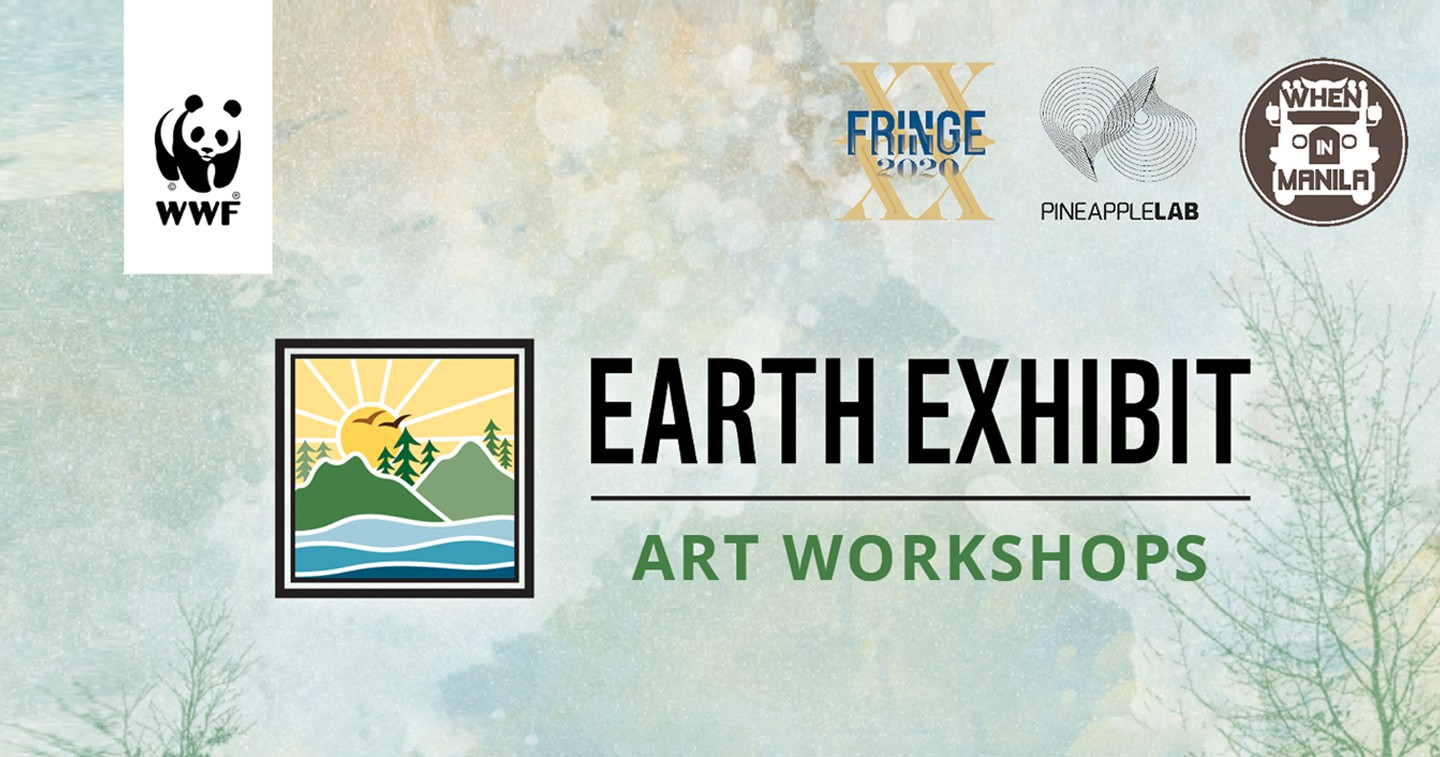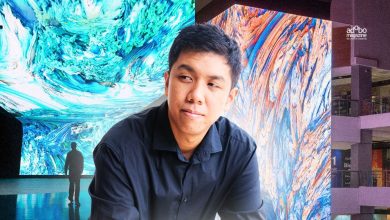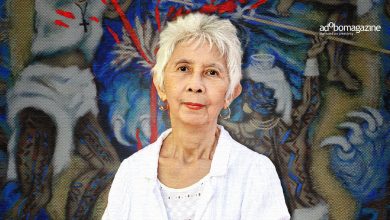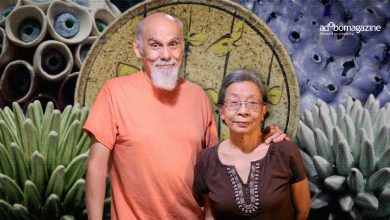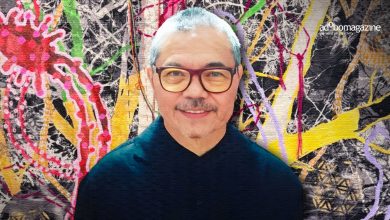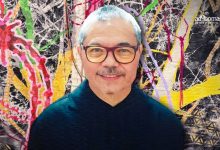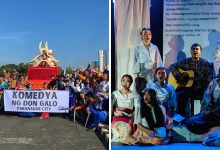MANILA, PHILIPPINES – This November, art aficionados are in for a new learning opportunity as the World Wide Fund of Nature (WWF) Philippines launches Art Workshop—a six-part learning series centered on different art forms to be led by WWF-PH’s partner artists.
The workshop series is the second leg of WWF-PH’s Earth Exhibit initiative, which aims to spread awareness on environmental conservation. By bringing together Filipino artists and art aficionados, the initiative also aims to raise funds for the provision of 100 environmental education modules to Filipino students.
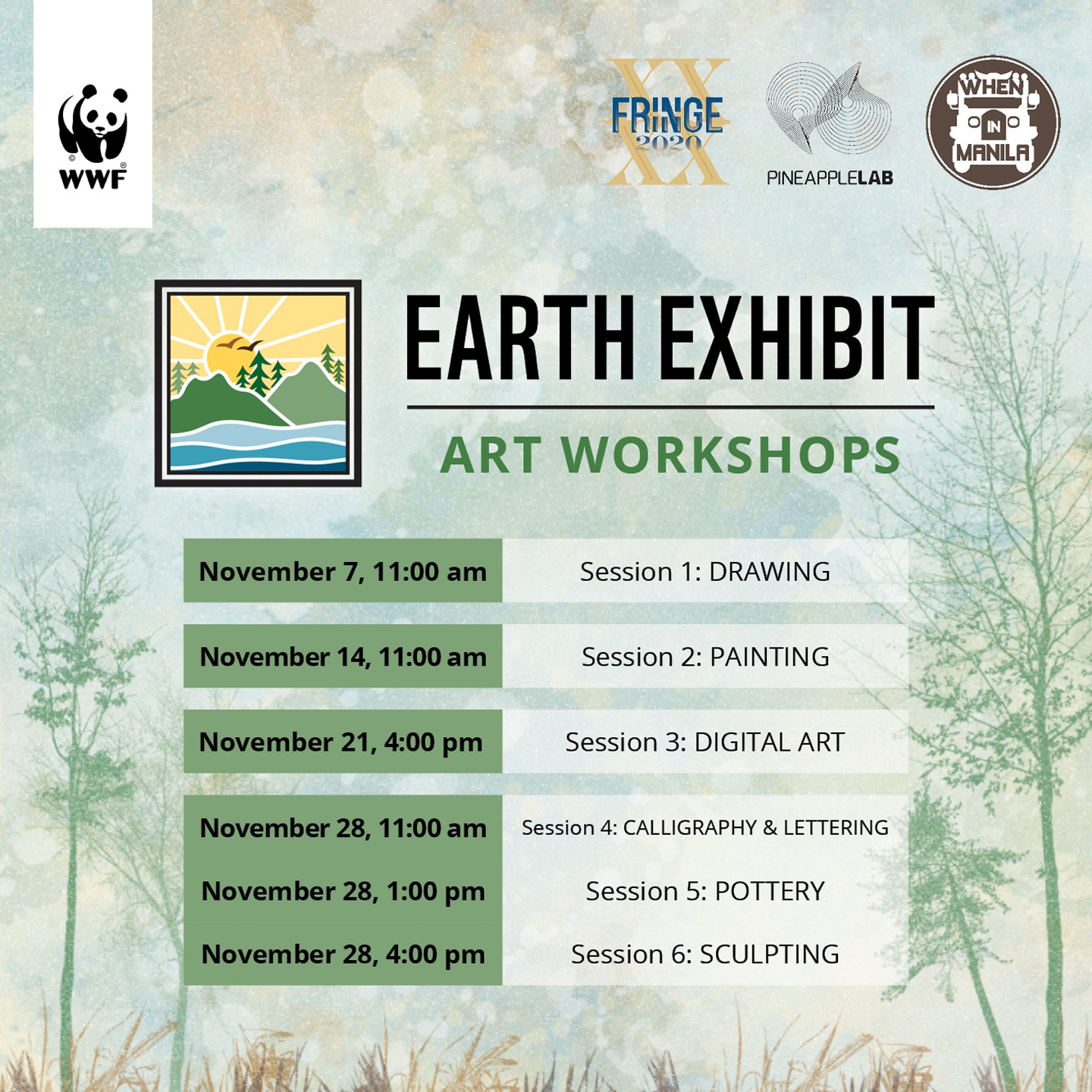
Kicking off the workshops on November 7 are Kenjay Reyes and Aubrey Rose Bea-Decoledt, who will share tips and tricks on drawing, which will be followed by a painting session from Anina Rubio and Nina Hidalgo on November 14. Sabine Buhain and Tristan Yuvienco will hold a tutorial on Digital Arts on November 21, and capping off the series is a multi-medium session on November 28 led by Micole Tam, Leeroy New, Nico Ng, and Mansy Abesamis.
Aubrey Rose Bea-Decoledt, founder of Art Smart Manila and a participating artist for the workshop series, shared her view on how art plays a role in environmental protection.
“Art has been equated with aesthetics, beauty, and order. Naturally, we are drawn to God’s creation as the standard of beauty, and this has inspired many to conserve nature or even improve it to make it more beautiful by adding man’s creative touch, through landscaping, architecture, engineering, which all promote art. Through the visual art, particularly paintings, and artworks that promote and communicate nature conservation and wildlife, we are able to cast a vision in people’s minds, whether young or old, which inspires them the act and take care of nature.”
Internationally-acclaimed designer Leeroy New, who will also share his expertise with the workshop attendees, stated his insights on the relevance of art in conserving the environment.
“Art can contribute in telling stories that lead to the changing of mindsets about humanity’s relationship to their environment. Art production itself can focus on practicing more sustainable strategies, and we can be more conscious about issues like waste production. Creative practice can and should evolve to actively propose solutions to environmental issues.”
On the other hand, clay artist Mansy Abesamis, shared how she hopes to #ChangeTheEnding for the planet through art.
“I’m going to be more proactive in using my art to make others realize how we are all interconnected—humans and other species; and I think pottery is a good avenue for this. When you see your hands molding earth, clay, into different shapes, you are reminded that for better or worse, the future is in your hands and that you direct its course. It’s very empowering. It wakes you up to the truth that our choices now will determine our future.”
Stay tuned and follow WWF-Philippines’ official social media pages for the complete event lineup and schedules. Together through art, let us help #ChangeTheEnding for the environment and our partner communities.


